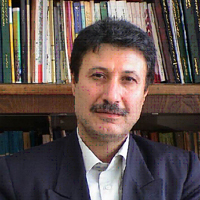Investigating factors affecting the location of hotels and its spatial reflections in urban area (case study: Bandar Anzali)
Coastal urban areas are one of the richest and most dynamic spots in the world's vast tourist attractions. The valuable and diverse resources of these areas have become one of the most sensitive and valuable areas for tourism investors. In such areas, investments in the construction of human environments, especially in the field of tourism services, have grown rapidly. In the last three decades, the growth of accommodation services for tourists, especially hotels, has led to a widespread spatial-competitive spatial location of coastal cities. In recent decades, this has increased in the northern regions of Iran. And the competition of hotel capitalists in choosing their location has brought about spatial-location challenges in which personal, economic, social, cultural, political factors ... have been effective. For this purpose, in this paper, factors affecting the location of the beach hotels of Bandar Anzali their reflections are investigated using the new multivariate graphical model CO-PLOT and GIS. This paper uses a descriptive-analytic method to collect the information needed for this research through questionnaires and interviews from the statistical community of hotel owners including investors, partners, managers and supervisors of Anzali Beach Hotels. After collecting the data of the experts questionnaire, the results of the study were studied. At the first stage, the factors influencing the location of hotels and ranking these factors to identify the various experimental and effective factors in selecting the location of the hotels by presenting the graph with the help of CO-PLOT software has been investigated. In the next step, the spatial pattern of distribution of different types of hotels in Anzali city has been investigated by analyzing the priorities of these factors in GIS software. The results of the research show that there is a special relationship between the empirical models and theoretical Mono-centric models of hotel accommodation. As influenced by the effective empirical models -such as economic factors, access, laws and regulations, physical characteristics of the site, social and cultural characteristics, neighborhood, independent factors- and theoretical Mono-centric model of this relationship.
-
Examining the Compatibility of Green Infrastructure with Urban Land Use, Case Study: Abbasabad Lands of Tehran
Sara Allah Gholipour, *
Journal of Urban Ecology Researches, -
A Comparative Study of Population Growth Indicators in Iranian Cities and Their Geographical Neighbors
Keramatolah Ziari *, Samin Yousefi
Journal of Urban Economics,



